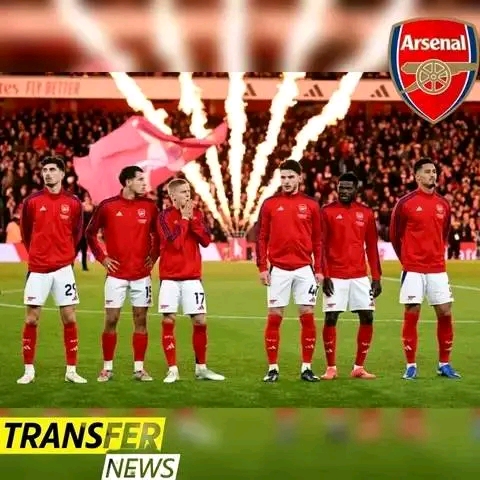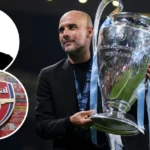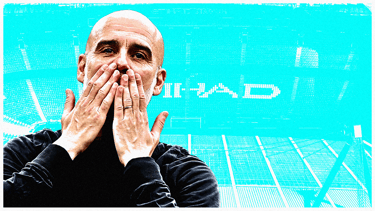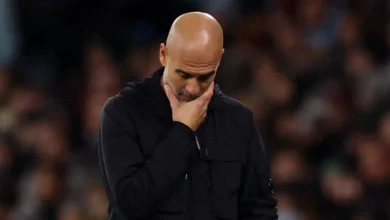Atletico Madrid are in ‘serious talks’ to sign £30m Arsenal star

Atletico Madrid has entered serious negotiations with Arsenal regarding the potential transfer of Oleksandr Zinchenko. The Ukrainian defender’s situation at Arsenal has significantly changed over the past season, with his playing time drastically reduced compared to previous years. In his first two seasons at the Emirates Stadium, Zinchenko was a regular fixture in the team, making 27 Premier League appearances in each campaign. However, this season has seen a dramatic shift in his role, with only eight appearances in the top flight, and just two of those being starts.
The decline in Zinchenko’s playing time can be attributed to several factors, including Arsenal’s signing of Riccardo Calafiori and the emergence of young talent Myles Lewis-Skelly. These developments have effectively pushed Zinchenko down the pecking order in Arsenal’s defensive lineup. The situation has caught the attention of several European clubs, with both Atletico Madrid and Borussia Dortmund expressing interest in acquiring his services.
According to reliable insider Florian Plettenberg, Atletico Madrid has emerged as the frontrunner in the race to sign Zinchenko. The Spanish club is currently engaged in what are being described as “serious talks” with Arsenal regarding the transfer. The negotiations appear to be following two possible paths: either an initial loan deal with a mandatory purchase clause, or an immediate permanent transfer.
Arsenal has set their valuation of Zinchenko at approximately €20 million (£16.8 million). While this figure has proven to be a sticking point for Borussia Dortmund, who consider it excessive, Atletico Madrid seems more willing to meet Arsenal’s demands. The transfer discussions are further facilitated by Zinchenko’s own desire to leave Arsenal, as reported by sources close to the negotiations.
The transfer market dynamics surrounding Arsenal have become increasingly interesting, particularly with recent developments regarding potential incoming transfers. The club has been linked with Newcastle United striker Alexander Isak, though any move for the forward would likely command a fee exceeding £100 million. This context makes the potential sale of Zinchenko more significant, as it could provide Arsenal with additional funds to reinforce other areas of their squad.
Former Arsenal player Alan Smith has publicly endorsed the idea of selling Zinchenko. Smith’s reasoning centers on the practical benefits of generating revenue from a player who is currently not contributing significantly to the team’s on-field performances. The funds generated from Zinchenko’s sale could be strategically reinvested in areas where Arsenal needs strengthening.
The broader context of Arsenal’s transfer activities shows a club in transition, actively working to optimize their squad composition. The potential departure of Zinchenko represents more than just a single transfer; it reflects Arsenal’s ongoing evolution under manager Mikel Arteta. The club has demonstrated a willingness to make tough decisions regarding player personnel, even with established squad members like Zinchenko.
Looking at Arsenal’s recent history with transfers, there’s a clear pattern of strategic planning and careful consideration of both immediate and long-term needs. The rise of younger players like Lewis-Skelly indicates the club’s successful youth development program, which has given them the confidence to consider releasing more experienced players like Zinchenko.
The situation also highlights the competitive nature of modern football’s transfer market. With multiple clubs interested in Zinchenko’s services, Arsenal finds itself in a position to potentially secure a reasonable return on their investment. The reported interest from both Atletico Madrid and Borussia Dortmund demonstrates Zinchenko’s continued value in European football, despite his reduced role at Arsenal.
The financial aspects of the potential transfer are particularly noteworthy. Arsenal’s valuation of £16.8 million for Zinchenko represents a pragmatic approach to the market. While this figure might seem high to some clubs, like Borussia Dortmund, it reflects both Zinchenko’s experience and his potential value to a new team. The fact that Atletico Madrid appears willing to meet this valuation suggests they see significant value in adding Zinchenko to their squad.
The transfer discussions also reveal the different approaches taken by various clubs in the transfer market. While Borussia Dortmund’s hesitation over the price tag shows their more conservative approach to transfers, Atletico Madrid’s willingness to engage in serious negotiations demonstrates their more aggressive transfer strategy. This difference in approach could ultimately determine Zinchenko’s destination.
The impact of this potential transfer extends beyond just Arsenal and Atletico Madrid. It could trigger a series of related moves in the transfer market, as clubs adjust their strategies and targets based on this development. The transfer market often operates like a complex ecosystem, where one significant move can lead to multiple subsequent transfers.
Looking at the broader implications for Arsenal, the potential sale of Zinchenko could mark the beginning of a more extensive squad overhaul. The club has shown ambition in the transfer market, particularly with their interest in high-profile players like Alexander Isak. The funds generated from Zinchenko’s sale could contribute to these larger transfer plans.
The timing of these transfer discussions is also significant. With the transfer window in full swing, clubs are actively working to strengthen their squads for the remainder of the season. For Atletico Madrid, acquiring a player of Zinchenko’s caliber could provide them with valuable defensive options as they compete in multiple competitions.
From Zinchenko’s perspective, the move could offer an opportunity to revitalize his career. Having seen his playing time diminish at Arsenal, a transfer to Atletico Madrid could provide him with the regular first-team football he desires. The Spanish league’s style of play might also suit his technical abilities and tactical understanding of the game.
The potential transfer also reflects the evolving nature of modern football careers. Players increasingly need to be proactive in seeking opportunities for regular playing time, even if it means leaving established clubs like Arsenal. Zinchenko’s willingness to consider a move demonstrates this professional pragmatism.
Arsenal’s management of this situation shows their understanding of the need to balance squad harmony with financial prudence. By being open to Zinchenko’s departure, they’re showing respect for the player’s wishes while also potentially securing funds for future investments in the squad.
The role of agents and intermediaries in such transfers cannot be understated. The “serious talks” mentioned by Plettenberg suggest that significant behind-the-scenes work has already been done to facilitate this potential move. These negotiations often involve complex discussions about contract terms, payment structures, and various performance-related clauses.
The transfer market also reflects the global nature of modern football. The interest in Zinchenko from clubs in different countries shows how players’ reputations and values transcend national boundaries. His experience in both English and Ukrainian football makes him an attractive proposition for clubs across Europe.
The financial implications of this transfer could extend beyond the immediate transfer fee. Factors such as wages, bonuses, and potential sell-on clauses all need to be carefully negotiated. These elements can significantly impact the overall value of the deal for all parties involved.
The media coverage of these transfer negotiations also plays a significant role in shaping public perception and potentially influencing the negotiations themselves. The reported interest from multiple clubs could help Arsenal maintain their asking price, while also potentially attracting interest from other teams.
Looking at the technical aspects of the potential transfer, Zinchenko’s versatility could be a key factor in Atletico Madrid’s interest. His ability to play in multiple positions, including left-back and midfield, would provide valuable tactical options for their manager. This versatility could justify the investment required to secure his services.
The structure of the potential deal, whether as an immediate permanent transfer or a loan with an obligation to buy, reflects the creative approaches modern clubs take to transfer dealings. These different structures can help clubs manage their financial commitments while still securing their desired targets.
For Arsenal, the potential departure of Zinchenko would also free up space in their squad for potential new arrivals. This aspect of squad management is crucial in modern football, where clubs must carefully balance their resources and comply with various financial regulations.
The reaction from Arsenal fans to these developments has been mixed, reflecting the emotional attachment supporters develop to players. However, the practical benefits of the transfer, particularly in terms of generating funds for new signings, have been acknowledged by many supporters and pundits alike.
The potential move also highlights the importance of timing in transfer negotiations. With the transfer window having specific deadlines, all parties involved need to work efficiently to complete any deal. This time pressure can often influence the final terms of transfers.
Looking ahead, the success of this transfer could be measured in different ways for different parties. For Arsenal, generating a reasonable fee for a player with limited playing time would be considered a positive outcome. For Atletico Madrid, acquiring an experienced international player would strengthen their squad. For Zinchenko himself, the opportunity for regular playing time could rejuvenate his career.
This transfer saga also demonstrates the complexity of modern football transfers, where sporting, financial, and personal considerations all play crucial roles. The outcome of these negotiations could have significant implications for all parties involved, making it a fascinating example of the modern transfer market in action.















